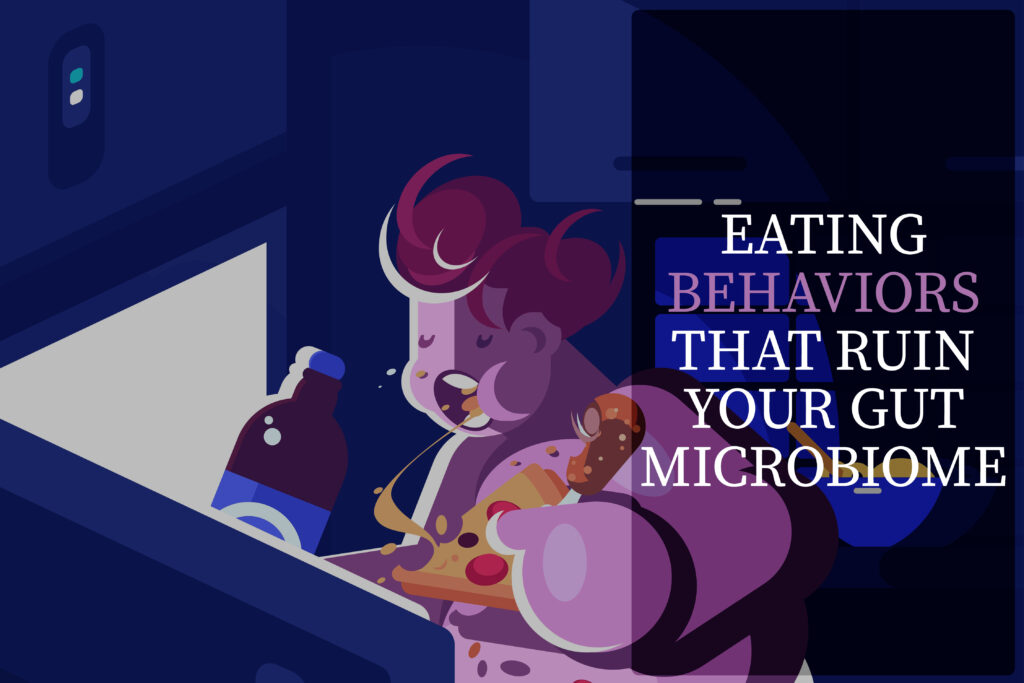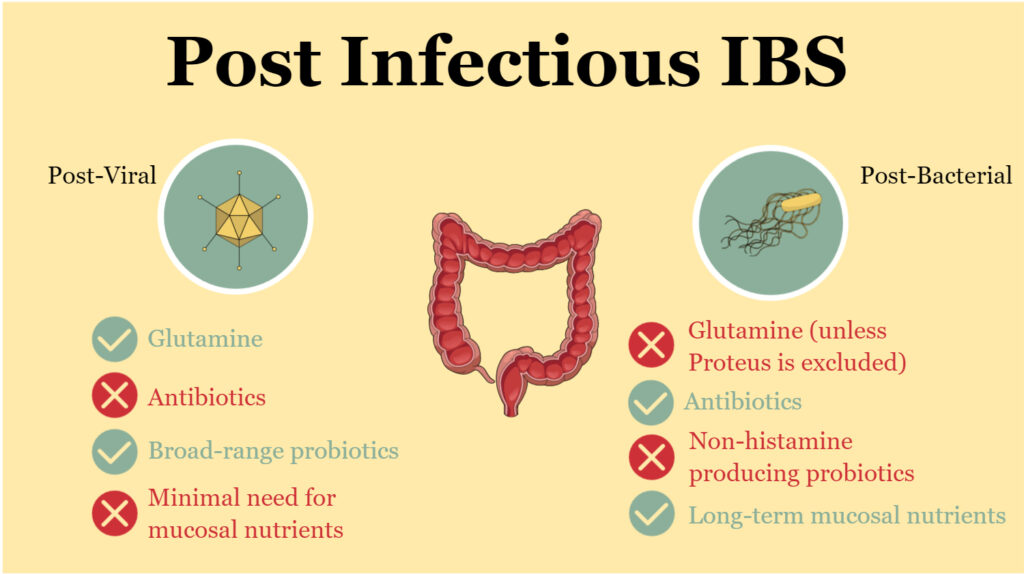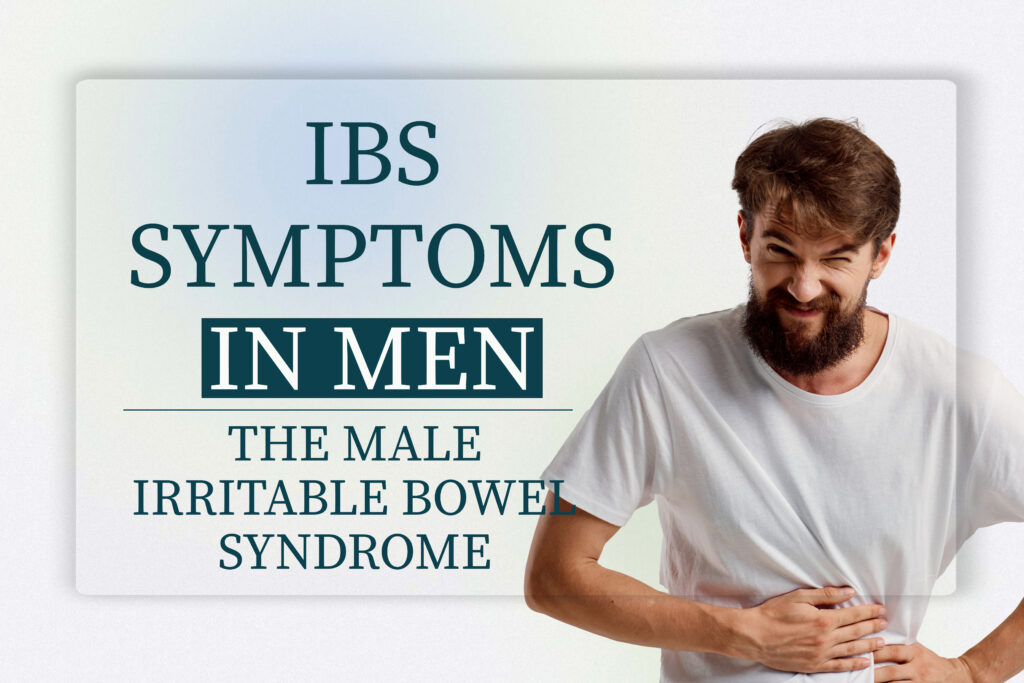Abdominal bloating
7 very specific causes
Abdominal bloating is the messenger. The real causes could be dozens —and it all comes down to each individual’s biochemistry
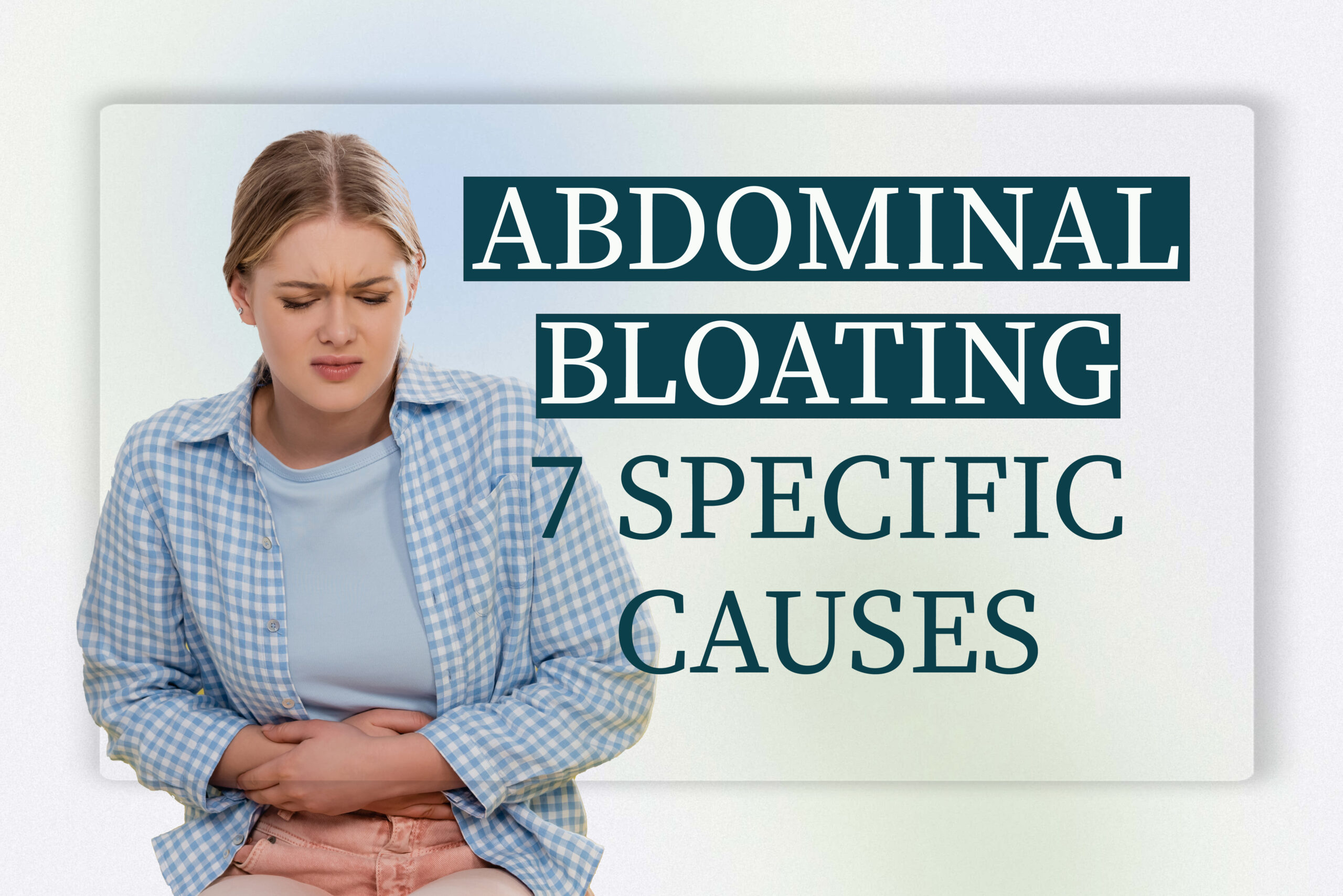
Table of Contents
After working with over 4,000 patients, I’ve learned that many causes of abdominal bloating lie in subtle biochemical imbalances that trigger chronic bloat, leading to not just discomfort but even abdominal pain and sometimes even diarrhea.
The misplaced air mystery
At first glance, it might seem that bloat after eating is simply due to the food sitting in your stomach. But the truth is more complex. The bloat you feel isn’t just the result of swallowed air that travels directly into your abdominal cavity; and how could this be the case, since your mouth is about 8 meters upwards from the site of your bloating!
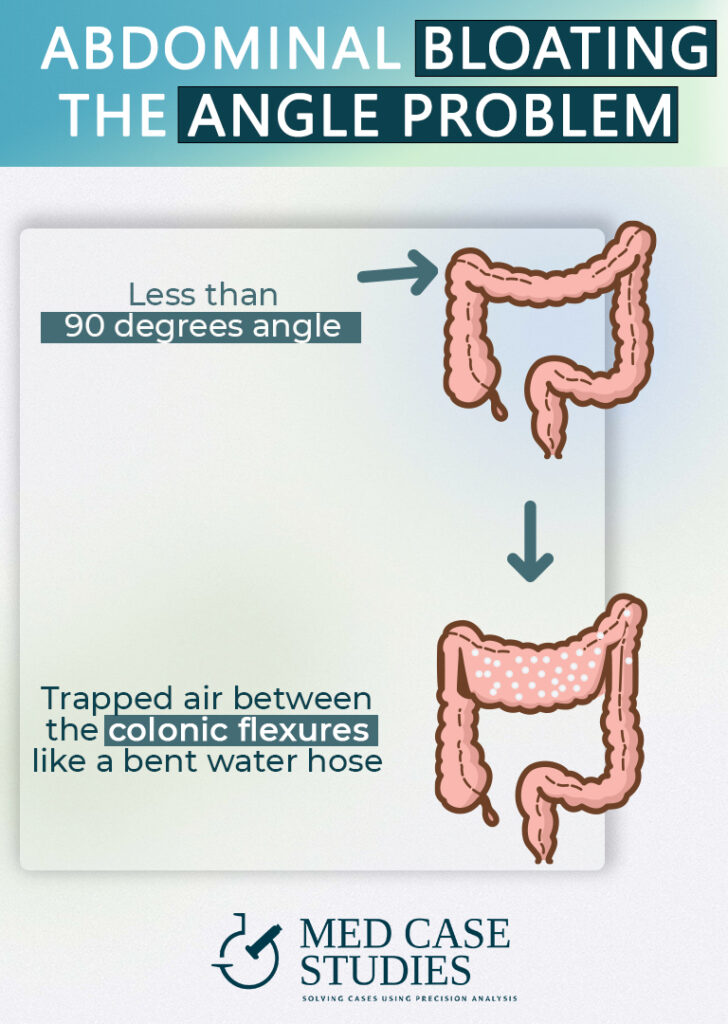
Instead, it is caused by internal processes that produce gas deep in your digestive system. You might have been told that you swallow air and that this air accumulates—but realistically, the air or gas produced inside, especially between those angled colonic flexures, is the main culprit. This isn’t your average case of bloating that comes and goes; it’s a signal that something isn’t right with your gut’s natural fermentation process, and it may help to know that even though many people try home remedies, the real answer lies in understanding the specific causes.
7 specific possible causes of abdominal bloating
The response to the treatment of bloating, in the context of the same diagnosis (IBS) is completely different from patient to patient. And it all comes to the patients’ different biochemistries. Let’s see some examples of bloating in the context of different triggers:
Post-infectious bloating
After infections or a course of antibiotics, the balance in your digestive system is disturbed. This dysbiosis—a common cause of abdominal bloating—can lead to a buildup of gas and even diarrhea. If you’ve been sick recently, you might notice a bloat that lingers, signaling that your gut bacteria are still recovering.
Post-Infectious IBS
READ MORE
Post-cholecystectomy bloating
When you have your gallbladder removed, your fat digestion changes. This can lead to fat malabsorption and an abdomen that fills with air or gas. The resulting bloat, often accompanied by abdominal pain, is not merely about eating too much; it’s a specific biochemical response to a disrupted digestive process.

Post-Cholecystectomy IBS
READ MORE
After contracting Pseudomonas from a pet
Believe it or not, your pet could be linked to your bloat. Pseudomonas elastase from a pet infection damages the duodenum, triggering inflammation and leading to bloat. This type of bloat isn’t from swallowed air—it’s a direct consequence of bacteria in the small intestine upsetting the balance.
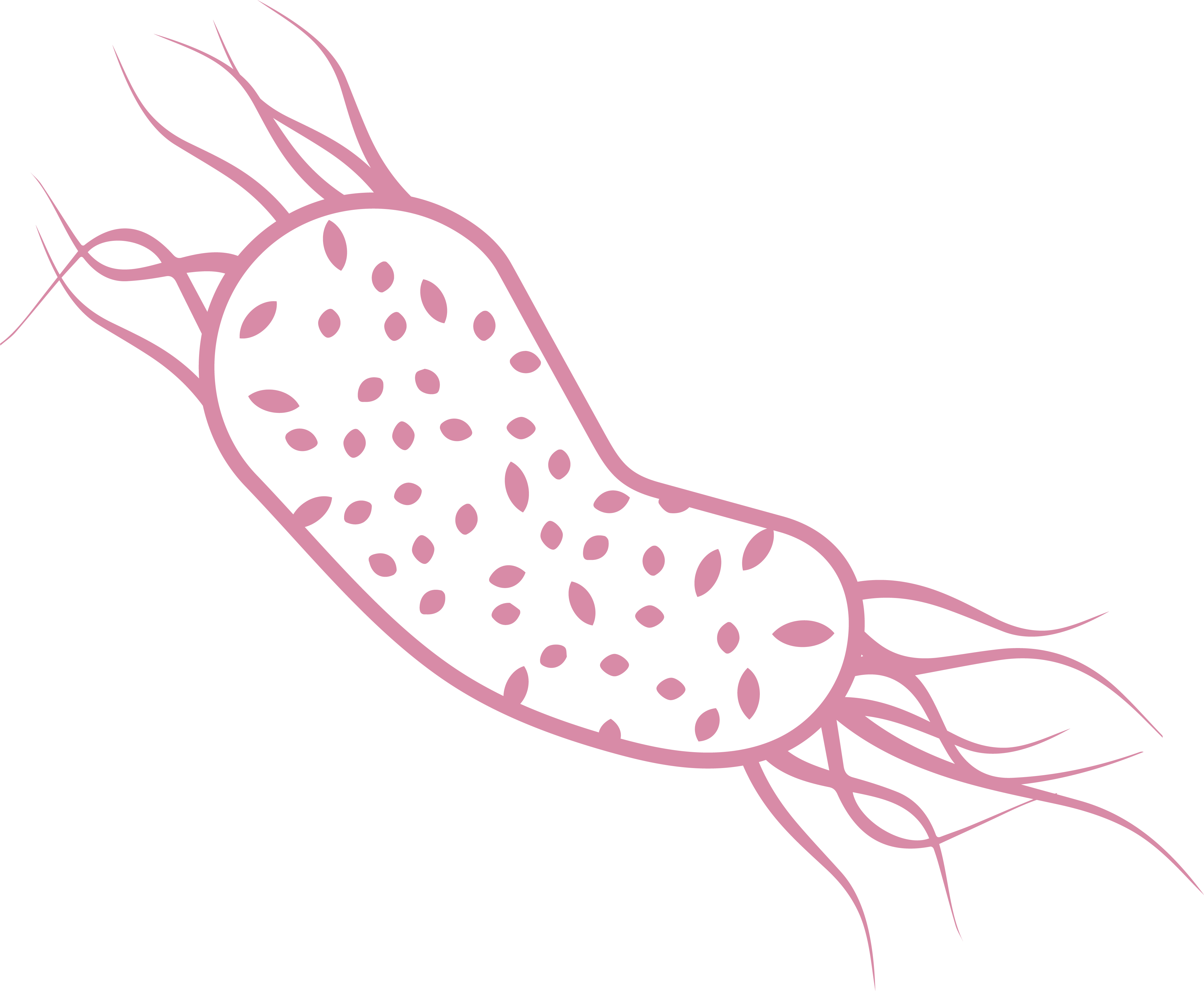
Pseudomonas-IBS
READ MORE
If you have Proteus and take glutamine
An excess of glutamine in your system can allow Proteus bacteria to overgrow, creating a biochemical imbalance. This bloat may be caused by such an overgrowth and can bring on constipation and abdominal pain. The resulting bloat underscores that sometimes it isn’t about eating too much but about the quality of the fermentation process.
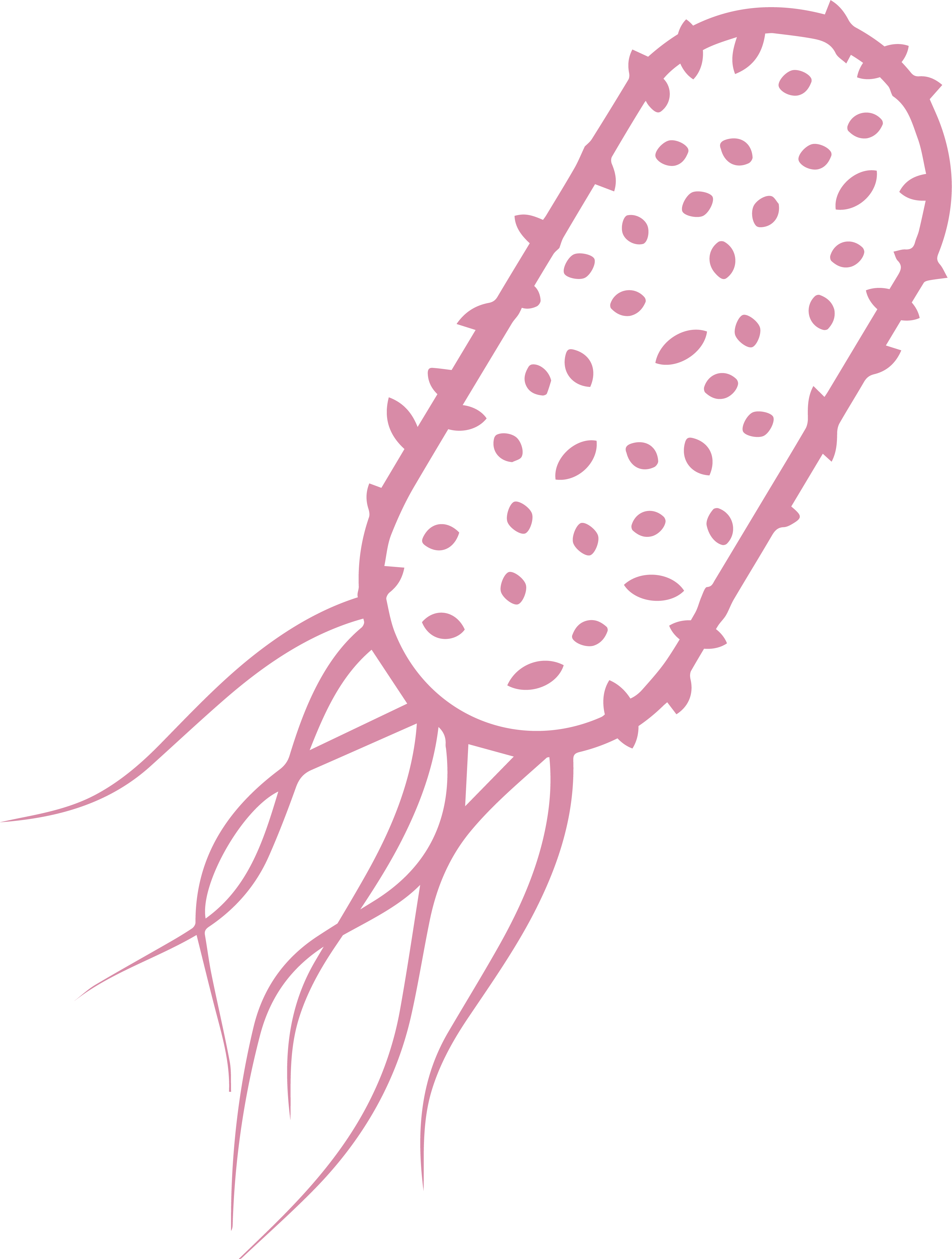
Proteus-IBS
READ MORE
After taking PPI's for a long time
Prolonged use of proton pump inhibitors (PPIs) has been linked to small intestinal bacterial overgrowth. When you rely on PPIs for stomach acid reduction, the digestive environment shifts, leading to a buildup of gas and bloat. This bloat is more than just discomfort; it’s a potential serious cause of pain and bloating.
PPI-IBS
READ MORE
Chronic late-night eating
Regular late-night meals can disrupt regular stomach emptying, leaving your stomach or intestines with more time to ferment. This disruption can cause the bloat that makes you feel full in an uncomfortable way. Eating too much at night may contribute to both a bloat that comes and goes and chronic bloating that becomes a recurring problem.
SIBO-IBS
READ MORE
If you suffer from diabetes
In people with diabetes, exocrine pancreatic insufficiency may lead to improper digestion. This can result in fermentation that causes a bloat filled with gas and abdominal discomfort. When the digestive system can’t process certain foods effectively, the bloat may be caused by several possible causes, including a buildup of gas that leads to both abdominal pain and potential weight gain.
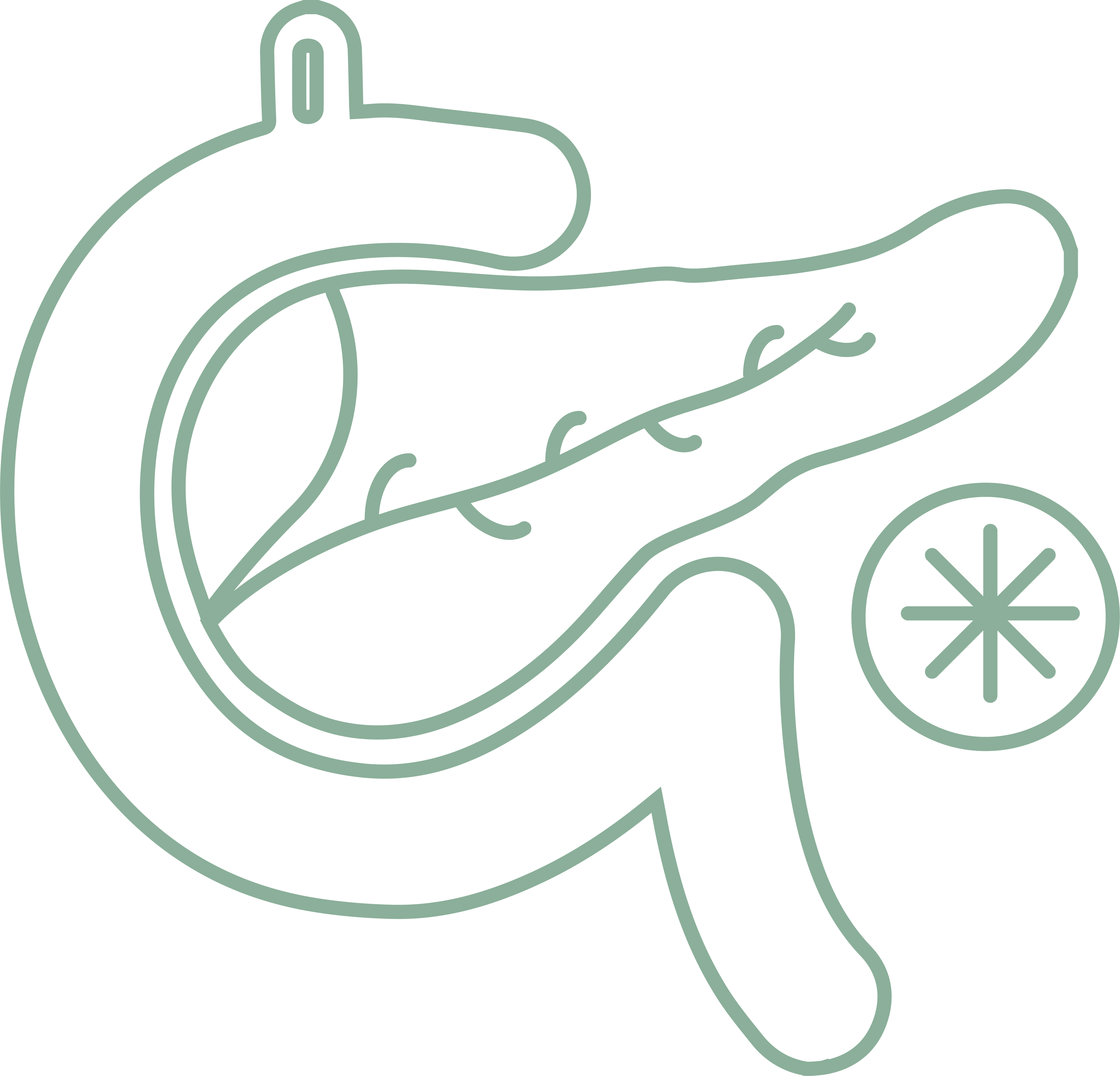
Exocrine-IBS
READ MORE
These are only some of the possible causes of bloating. Although bloating is a common symptom in all of the scenarios described, the biochemical triggers for this symptom may vary. In order to effectively resolve bloating, it is important to recognize the specific biochemical trigger that is causing the symptom. Without identifying the underlying cause, it may be difficult to effectively treat the bloating and achieve long-term symptom relief.
Individual variability and anatomical considerations as the cause of bloating
No two bodies are exactly alike. The way bloat manifests in your abdomen depends on personal traits and even anatomical differences. For instance, a dolichocolon may trap gas more easily, resulting in a bloat that is both uncomfortable and persistent. Additionally, hormonal fluctuations—especially in women—can further contribute to bloat. When you feel bloated, it might be due to lower abdominal bloating that is unique to your physiology, and understanding these nuances is key to managing your symptoms.
Diagnosing and managing abdominal bloating
Finding relief from bloat starts with a clear diagnosis. You’ve probably asked yourself, “How do I get rid of a bloated belly?” and wondered if “Does abdominal bloating cause shortness of breath?” These are common questions, and addressing them requires a personalized approach.
Comprehensive medical, lifestyle and dietary history
It all begins with a detailed review of your medical history. Understanding when your bloat occurs, whether it follows certain foods (like lactose or certain foods known to cause food intolerance), or if it’s accompanied by constipation or diarrhea can provide crucial clues.
Targeted testing and analysis
Next, targeted testing is essential. Tests to check for specific bacterial populations, enxyme deficiencies, small intestinal bacterial overgrowth, lactose intolerance, or even irritable bowel syndrome can reveal the underlying cause of your bloat. These tests rely on peer-reviewed studies and strict sourcing guidelines and relies on peer-reviewed research from academic research institutions.
Personalized management strategies
Finally, managing bloat requires a tailored remedy. Diet adjustments, antimicrobials, probiotics, and other interventions may help relieve bloating.
How to relieve bloating?
The bloat you experience can be traced back to very specific causes—from post-infectious dysbiosis to changes following a cholecystectomy, even to the effects of long-term PPI use or late-night eating. Understanding these causes is the first step toward finding a remedy that works for you.
Remember, your bloat is a signal from your body—a message that something in your stomach and gut needs attention. After working with thousands of patients, I’ve seen that effective management of bloat comes from addressing the underlying cause, whether it’s adjusting your diet and restoring the balance in your digestive system.
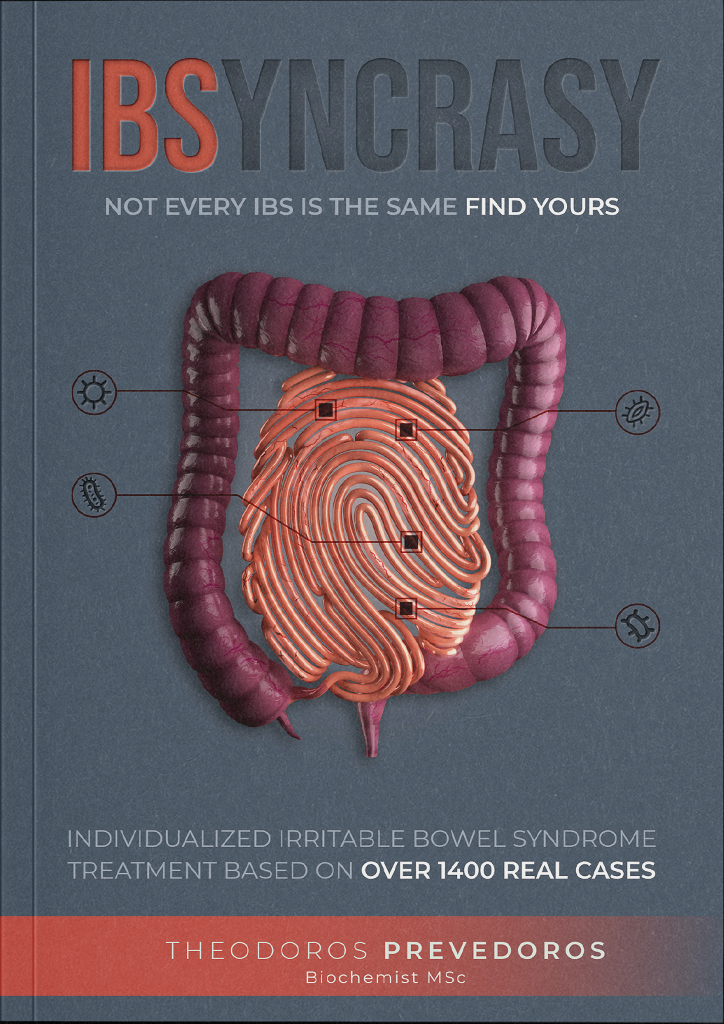

Theodoros Prevedoros, MSc
The Microbiome Biochemist
With extensive experience evaluating over 3000 cases in various specialties, including gastroenterology, pediatrics, and endocrinology, Theodoros has collaborated with more than 25 doctors from Greece and Cyprus and over 10 laboratories worldwide.
With a background in Chemistry and Biochemistry from the National and Kapodistrian University of Athens, Theodoros brings a wealth of knowledge in functional medicine and advanced treatments to his role. He possesses exceptional skills in analysis, pattern recognition, diagnostic translation, and storytelling. He is also FMU certified in Functional Medicine and has received training in advanced treatments from the Saisei Mirai Clinic in Japan.
With a background in Chemistry and Biochemistry from the National and Kapodistrian University of Athens, Theodoros brings a wealth of knowledge in functional medicine and advanced treatments to his role. He possesses exceptional skills in analysis, pattern recognition, diagnostic translation, and storytelling. He is also FMU certified in Functional Medicine and has received training in advanced treatments from the Saisei Mirai Clinic in Japan.
More posts

